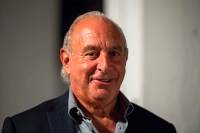In This Episode
Every year, The Spectator travels the country in search of the best and boldest new companies that are disrupting their respective industries. In a series of five podcasts, we will tell you about the finalists for 2023’s Innovator of the Year Awards, sponsored by Investec. The awards winners will be announced in a prize ceremony in November.
In the West, the UK was the first country to create a national health service, free at the point of use. And yet 75 years on, it’s rare that a winter goes by without some kind of crisis in the NHS. And that’s not even to mention the impact of the pandemic on waiting lists.
In this category we’re looking at innovations in the British health industry. How can we do things better? Many finalists in this category are relying on AI and better data collection, which can help with screening for cancer and more efficiently distributing medicines; some of them are literally inventing new technologies, patenting new materials to use in dentistry, for example, or 3D-printing personalised vitamins.
Martin Vander Weyer, The Spectator’s business editor, judges the awards and hosts this podcast along with three other judges: Jonny Olson, executive chair of Touchlight, a biotech start-up specialising in producing DNA at speed; Nicholas Hardie, non-executive director at Moorfields Eye Hospital NHS Foundation Trust; and Michelle White, co-head of Investec’s private office.
The finalists in this category are:
- Nourished, which uses 3D printing to produce personalised vitamin supplements.
- Ethoss Regeneration Ltd, which has developed and patented a novel bone graft material for use in dentistry.
- iEthico, which has developed an AI-powered platform to optimise the distribution of medicine to tackle shortages.
- Locate a Locum, which has connected locum pharmacists to pharmacies in need using a digital platform.
- Nuclera, which enables researchers to obtain active proteins from DNA at speed.
- Attomarker, which uses nanotechnology to measure human biomarkers in the diagnostics process.
- Kheiron Medical Technologies, which uses AI for early diagnosis of breast cancer.






Comments
A blooming good offer
Join the conversation with other Spectator readers by getting the next 3 months for £3.
CLAIM OFFER 3 months for £3Already a subscriber? Log in